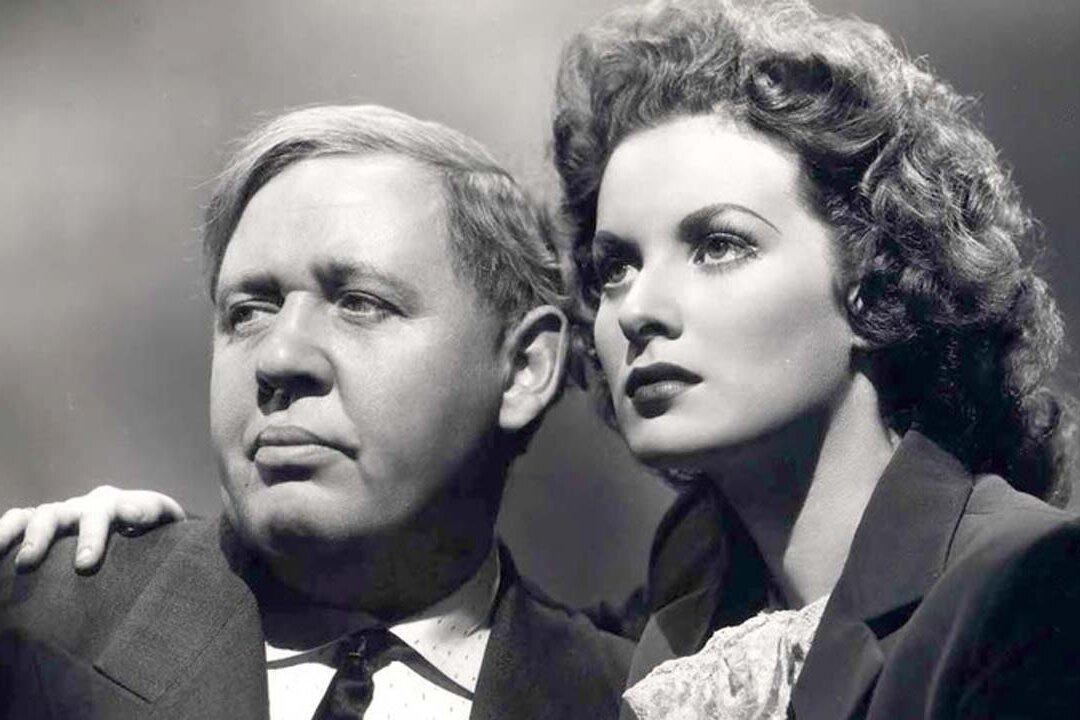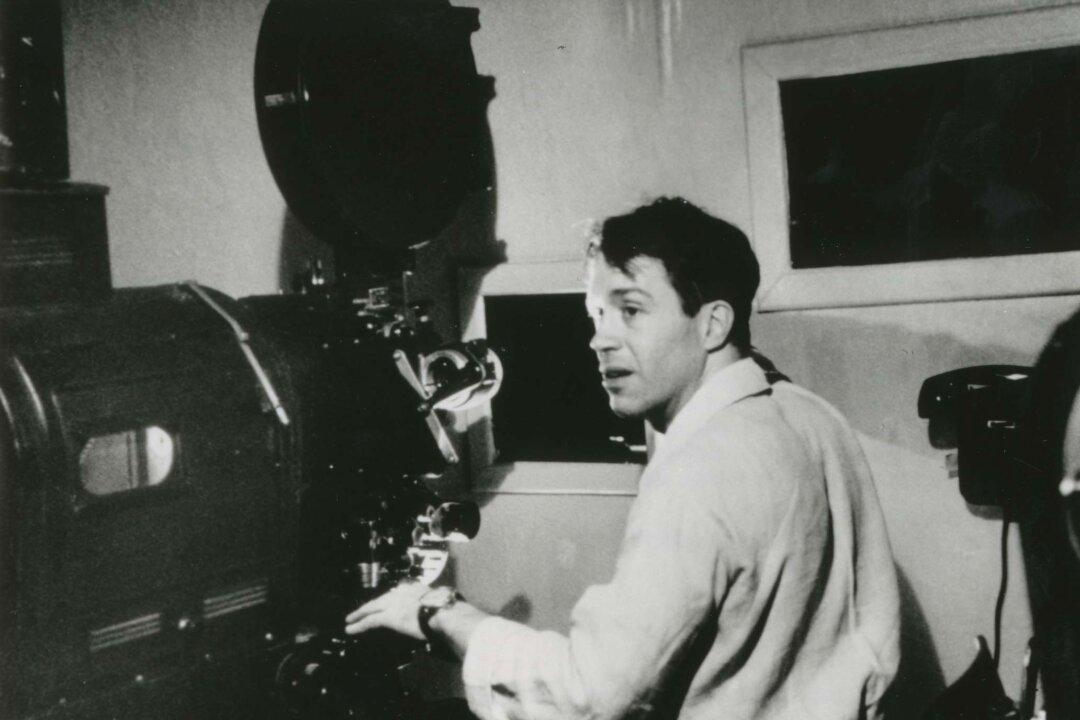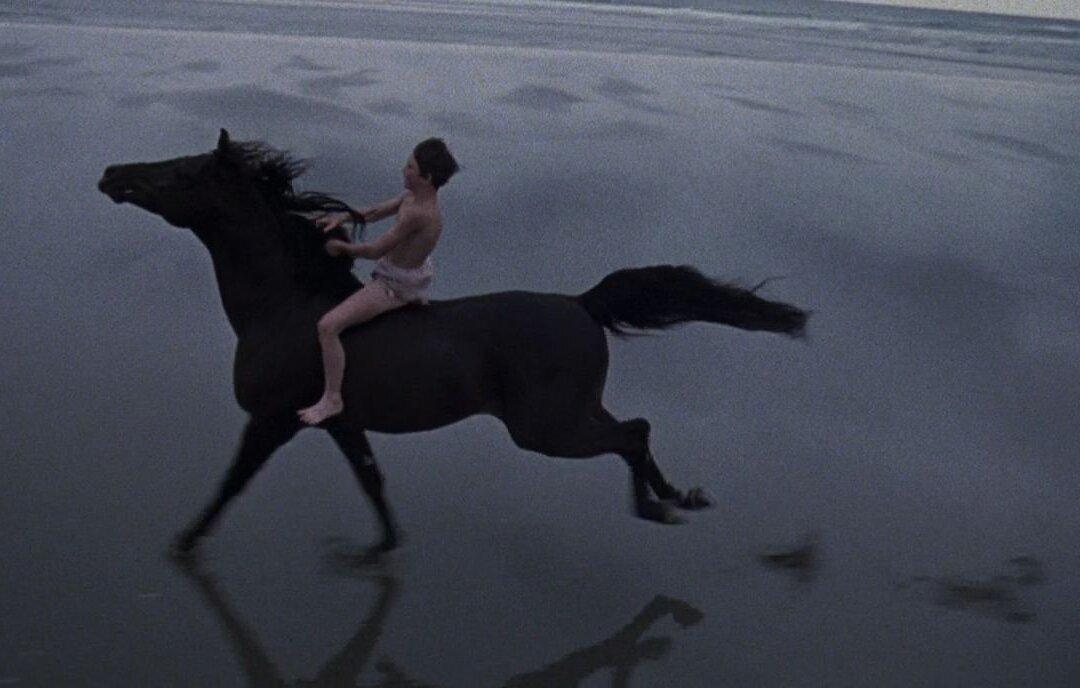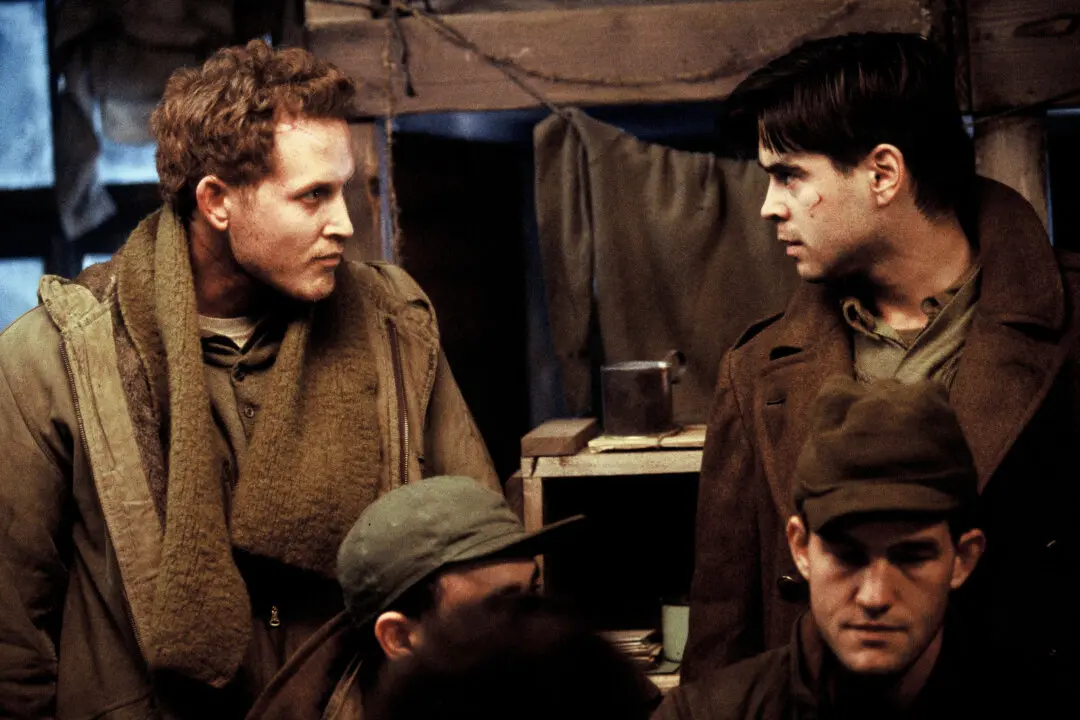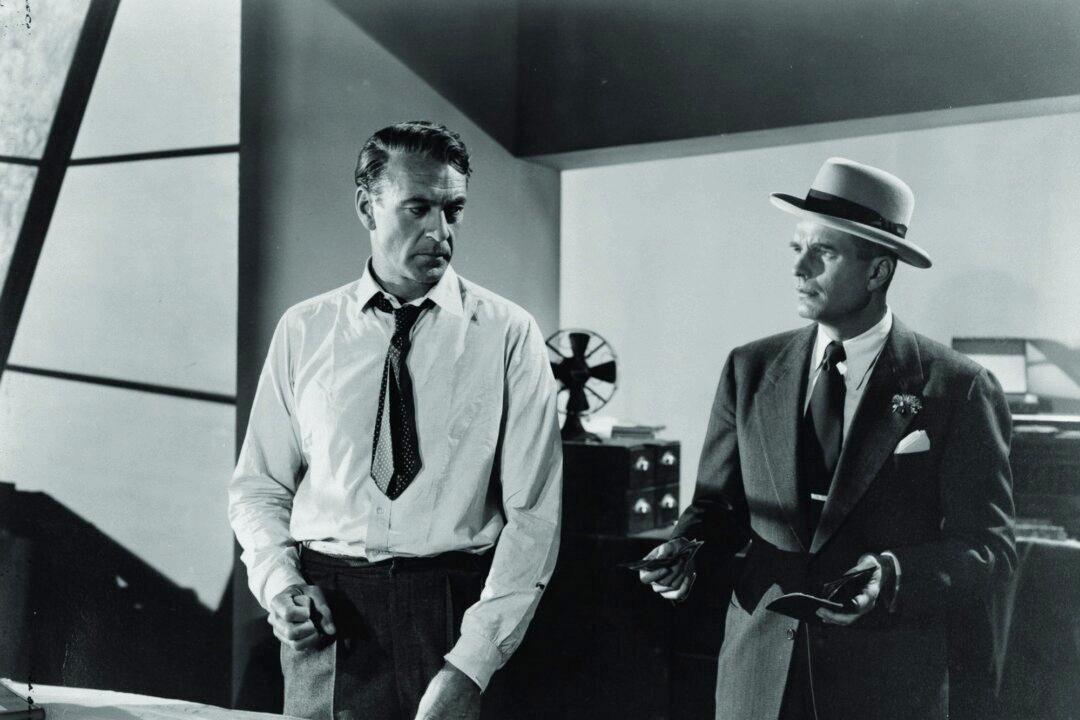NR | 1h 43min | Drama | 1943
Jean Renoir’s film opens with a close-up of a war memorial in the middle of a forlorn town square. The camera gazes at its inscription, “1914–1918: In memory of those who died to bring peace to the world.” That gaze falls to a newspaper on the grass below, its headline fluttering in the breeze: “Hitler Invades.” With that brief comment on a Europe condemned to repeat mistakes of the past, the camera watches marching soldiers, and rolling tanks suddenly overrun the square. Now, something else flutters atop the city hall: a Nazi flag.
A European town witnesses a battle of wits between Nazi invaders, their complicit collaborators, and anti-Nazi saboteurs. Portly, timid, and bachelor schoolteacher Albert Lory (Charles Laughton), living with his suffocatingly doting mother Emma Lory (Una O’Connor), prefers self-preserving pacifism. He’s too timid even to declare his soft spot for comely colleague Louise Martin (Maureen O’Hara) who’s engaged to tall, dashing rail yard chief George Lambert (George Sanders).
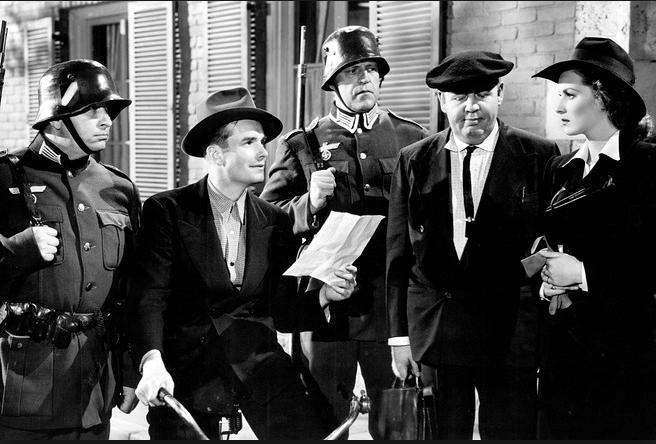
Traitors and Deceivers
Disillusioned with George’s self-deceptions, Louise turns to Albert, but despairs again believing that Albert is behind the Nazi execution of Paul, when it’s actually George’s fault. Facing near-certain sentencing for George’s death (actually, a suicide), Albert has one chance to defend himself. But called by court to speak the truth, even in his own defense, at first he seems too terrified to do so.Renoir’s film features anti-Nazi pamphlets slipped beneath doors, urging citizens, “Let each of us say to himself, ‘This land is mine’.” But he’s less concerned with land or geographical space than with mindspace. Believed to be set in his native France, Renoir universalizes his story by evading that specificity with his opening text “Somewhere in Europe.” Instead, he spotlights a different kind of asset: Human freedom is not an absolute. If it were, the powerful ought to prevail over the powerless, merely because they can. On the contrary, freedom is founded in human dignity and equality. Freedom that respects neither, is false; it is no freedom at all.
Renoir handpicked Laughton, brilliantly leveraging his stage and theater experience. Laughton’s climactic courtroom monologue lasts an extraordinary 15 minutes. His voice is loud one moment, and a barely audible whisper the next. He is showing how truth doesn’t become false when it’s faint or expressed by the soft-spoken, any more than it’s truer when it’s enforced by the loudest voice in the room.
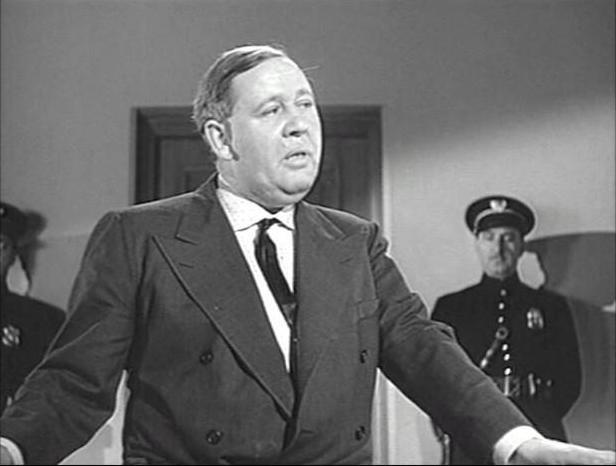
Albert’s low self-image flows from his mother’s refusal to trust him as an adult with even rudimentary decisions: what and how he eats, what he wears, how he dresses and whom he befriends. A light-hearted caricature she may be, but as a little mock fascist at home, she’s a comical microcosm for the real fascists looming over the town. Naturally, Albert’s so meek he prefers Louise’s pet cat as a proxy; he’s too scared to express affection for Louise herself. His character arc is subtle and convincing.
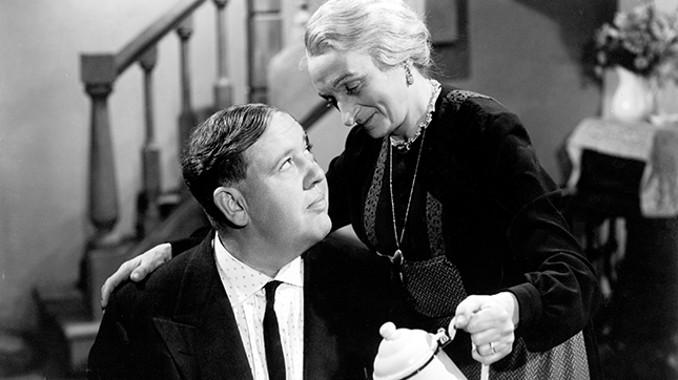
Renoir Relishes Symbolism
One Nazi gifts the guilt-ridden George a bird; George frees it, painfully aware of the irony of his slavish choices. Another Nazi places a flower in his lapel. He discards it, conscious that beauty bought by submissiveness is neither real nor lasting.Ordered to burn school library books authored by poets, novelists, artists, and intellectuals, Prof. Sorel is unfazed, “We contain those books, we contain truth. They can’t destroy the truth without destroying all of us.” Manville glibly tells Von Keller how to crush dissent: crush the free press.
Renoir frames Paul’s death as a sort of resurrection for Albert; the shot of a bolder, smiling Albert, stepping out of prison, follows one of Paul falling to Nazi bullets. To a chastened Albert, truth isn’t one of many options: It’s the only way. Unsurprisingly, he begins his monologue with the words, “My only defense is the truth.”

